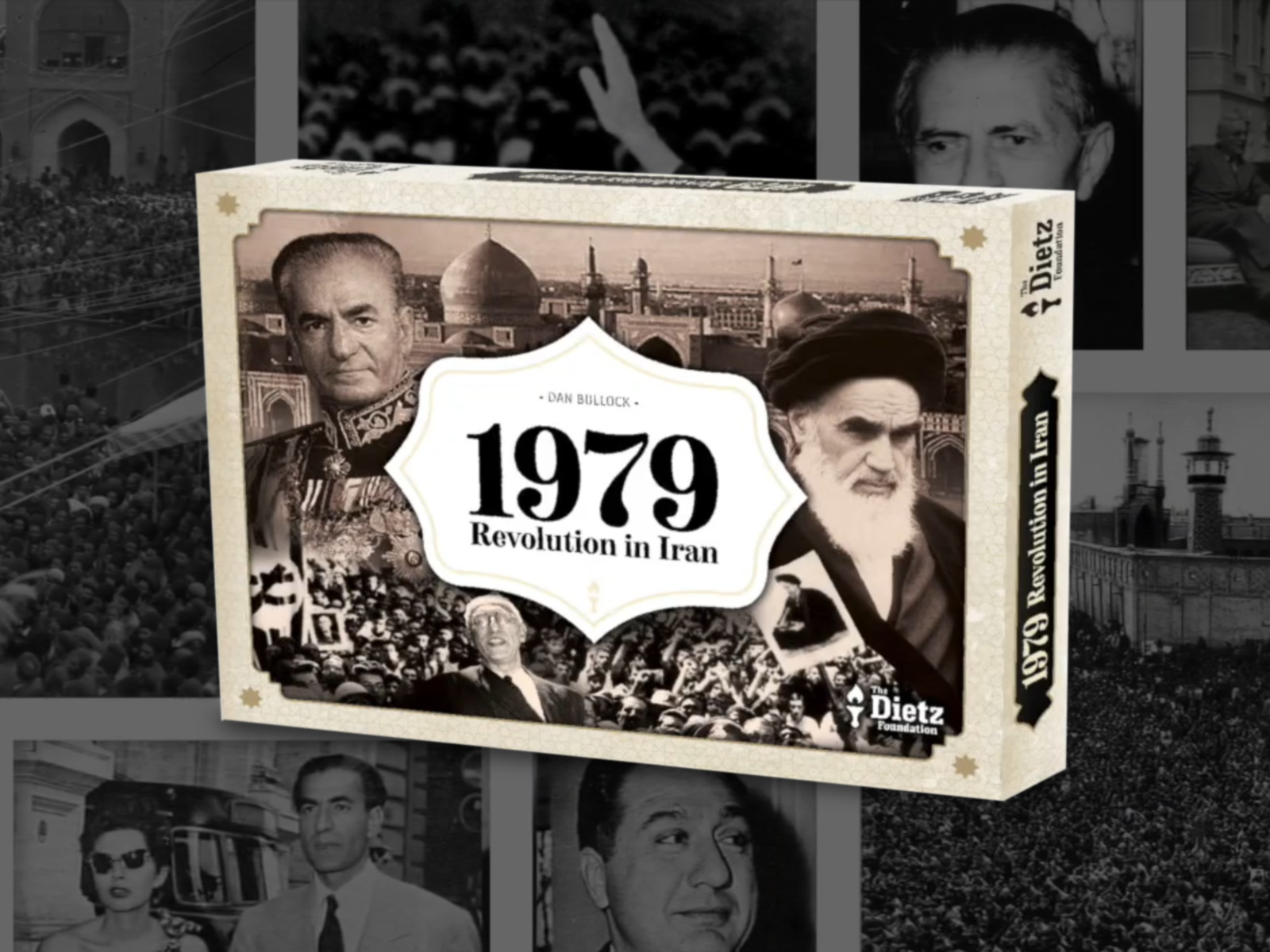Earlier this month, Dan Bullock launched a funding campaign on Kickstarter for his newest board game, "1979: Revolution in Iran," a historical cold war strategy game set in Iran. The campaign reached full funding within a handful of days, and having successfully swept up all the stretch goals – from mounted maps to wooden cubes – it is currently sitting at over twice the goal.
Bullock takes a unique approach to history by way of game game design — as pointed out during a livestream interview with Homo Ludens — as a way to give purpose to investigating a new topic.
"Normally (historical games) are probably designed from a standpoint of some expertise," said Bullock, "and for me, it was more about an interest in wanting to learn more, so I'll just read about this for two years and then design a game after reading about the subject."
Cold war games may be relatively common, but most take the perspective of the world players during that time (namely the U.S. and the western alliance against the Soviet Union) and relegate the rest of the world to pawns on the map. However, Bullock takes a closer look at what was happening inside Iran during that time and illuminates how the fight for ownership of the country's oil resources intensified.
In another interview at The Player's Aid, Bullock explained the unique scope of the game:
"Most games on the subject of Iran are about attacking it. I wanted to make a game about Iran with Iranians in the foreground. The conflict isn’t portrayed through the lens of superpowers. The biggest difference is scope … the design needs more types of influence to show sectarian clashes and more fluidity in how these influences align."
The game follows the events that occurred within Iran between the roughly three decades between 1951 and 1979 (such as Mossadegh's election, the Coup of 28 Mordad, the reign of the Shah and the Revolution of 1979).
A player's success depends on whether the Coalition player (they who are sympathetic to the country) or the Royalist player (they who are sympathetic to the British occupiers) are able to overthrow their opponent and install their preferred leader, and then accomplish as many goals as they can while in power. The Coalition player can also work towards a sudden death victory by nationalizing the country's oil supply and taking control away from the British occupiers instead.
Players do this by taking turns drafting a hand of cards, and then take turns playing out that hand to trigger good events, bury bad events, or use the action points on the card to rally citizens for oil and labor strikes, arrest dissidents, perform guerilla attacks on the military, and manage CIA/MI6 personalities.
As the game plays out, the amount of citizen support will tip favor one way or the other, giving new leaders a chance. The player in power will have to understand how best to take advantage of their leadership positions; the one who is not must wrest that power away.
Upon the close of the "1979: Revolution in Iran" funding campaign, the game will be produced by The Dietz Foundation, who claims the status as the only non-profit game publisher in the world. According to their website, the Dietz Foundation was started to help teachers use alternative means of education, endow scholarships to students focused on education and teach the general public through the play of games.
A two-player, card-driven trilogy?
This is not Bullock's first foray into the world of warring wood and cardboard, but a pattern does seems to emerging surrounding two-player, card driven historical war games.
In 2018, he tried to fund a release of "No Motherland Without," about the tensions between North Korea and the western world. While that funding campaign was ultimately not successful, the game still found a home with Compass Games, who finally released it earlier this year in February.
He is also in the process of funding and releasing "In the Shadows: French Resistance 1943-1944," which was the runner up during GMT's Game Jam, where creators team up for 48 hours to create an entirely new game from scratch. This game covers the French resistance of Nazi occupation during World War II.
Despite the similarities, the three are ultimately unrelated.
"I don't foresee a third game on Ba'athist Iraq for an 'Axis of Evil' series. The GMT game is small compared to the other two."
You can pledge support for "1979: Revolution in Iran" for another week, until the campaign closes on Wednesday, May 5.
Jason McDowell grew up in central Iowa and moved to Milwaukee in 2000 to attend the Milwaukee Institute of Art and Design.
In 2006 he began working with OnMilwaukee as an advertising designer, but has since taken on a variety of rolls as the Creative Director, tackling all kinds of design problems, from digital to print, advertising to branding, icons to programming.
In 2016 he picked up the 414 Digital Star of the Year award.
Most other times he can be found racing bicycles, playing board games, or petting dogs.






